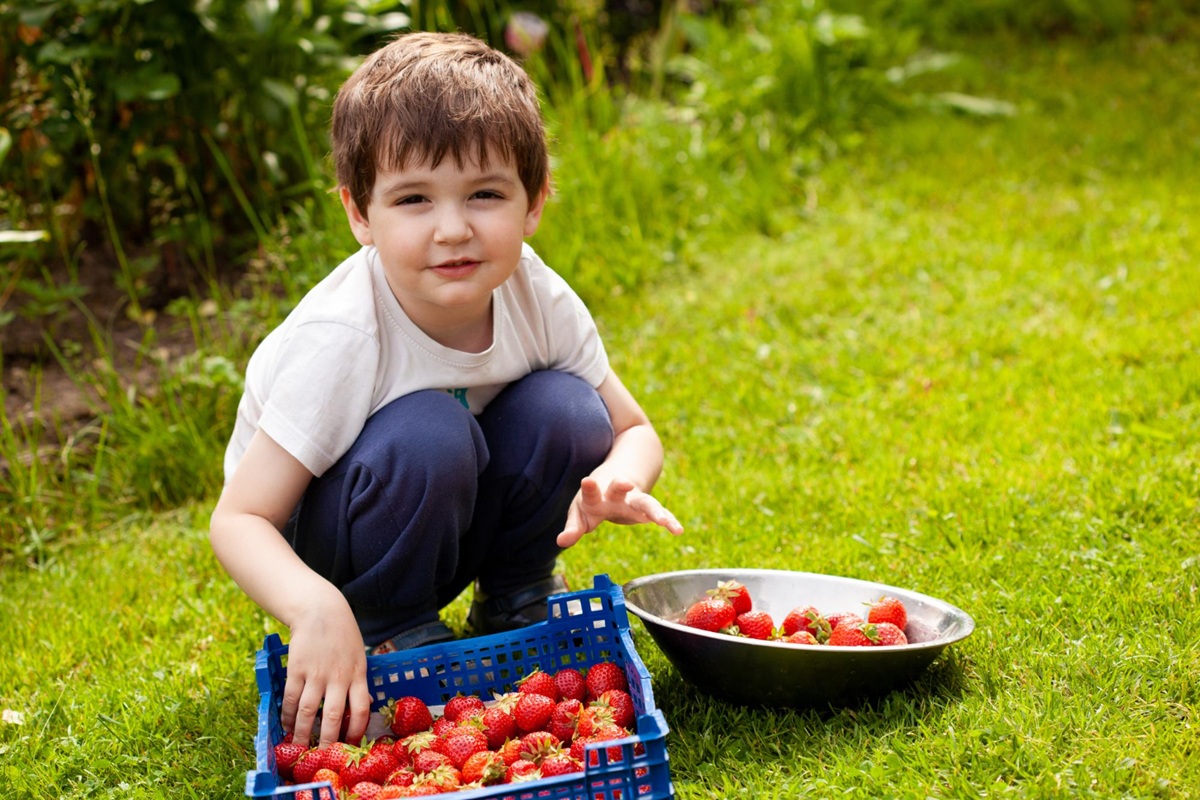
Red, juicy, sweet… Strawberries herald the return of sunny days. They charm both young and old, proudly gracing our tables in spring. However, behind this seemingly innocent facade, these red fruits hide a troubling truth: strawberries are champions of pesticide residues. This alarming observation is not inevitable, as solutions do exist to significantly reduce the traces of these substances on your fruits, and they may already be in your kitchen.
Why Are Strawberries So Contaminated?
It’s important to understand that strawberries are among the most chemically treated fruits during cultivation. Due to their delicate nature, they are particularly vulnerable to fungi, insects, and diseases, leading producers to frequently spray fungicides, insecticides, and herbicides. The result? Even after washing, numerous pesticide residues persist on the flesh—since strawberries lack a true protective skin.
Analyses conducted in recent years have shown that some conventional strawberries can contain up to ten different residues on a single fruit. Contrary to what one might think, rinsing strawberries under cold water is not enough to remove these chemical substances, especially when they have penetrated the surface.
White Vinegar: The Secret Weapon Against Pesticides
Fortunately, there is a simple, natural, and economical method to combat most of these residues: white vinegar. Far from being just a seasoning, vinegar also serves as a powerful cleaning agent due to its acidity.
For effective cleaning, simply soak the strawberries for five minutes in a solution made of four parts cold water to one part white vinegar. This immersion helps disintegrate the chemical residues on the fruit’s surface. Then, rinse the strawberries thoroughly with clear water, and gently dry them with a clean cloth or paper towel. You won’t notice any vinegar taste, but you will have significantly reduced the pesticide load.
This simple action can become a daily habit, especially if you regularly consume non-organic strawberries. It’s also a good practice for other delicate fruits like grapes, cherries, or apples.
No Vinegar? Salt Water Is Also Effective
If you’re out of vinegar, don’t worry. An equally natural alternative exists: a salt water soak. This method has proven effective in removing some pesticides, as well as bacteria and small insects that may be hiding in the fruit.
Prepare a solution by mixing eight cups of lukewarm water with two and a half tablespoons of salt. Soak the strawberries for five minutes, then rinse them thoroughly with cold water, and dry them off. This treatment is particularly beneficial for those sensitive to chemical residues or for children, who are often more vulnerable.
And Why Not… Red Wine?
Less conventional, but just as intriguing, the option of red wine is gaining traction. This is no joke: red wine, due to its tannin and alcohol content, has disinfectant properties and can also assist in dissolving some surface pesticides.
The trick is to soak the strawberries in a mixture of one part red wine and two parts water for ten minutes. After that, as always, it’s crucial to rinse the fruits well to avoid any alteration of flavor. This ritual, in addition to cleaning your strawberries, may lead to an unexpected treat: strawberries in red wine, a refined and quick dessert perfect for enhancing a romantic meal or surprising your guests.
Organic or Not Organic: Should We Still Be Careful?
It’s tempting to think that simply choosing organic strawberries resolves the problem. This is partly true, as strawberries from organic farming contain significantly fewer synthetic pesticides, if any. However, this does not mean they are completely free from residues. They may still have traces of natural products permitted in organic farming or be contaminated by spray drift from neighboring fields.
That’s why, even for organic fruits, thorough cleaning is still recommended. This helps eliminate dust, spores, pollen, or other impurities, and also extends their shelf life. A clean strawberry is a healthier, tastier strawberry.
Why This Practice Is Crucial For Our Health
It is now known that pesticides are suspected of having harmful effects on health, even at low doses and over the long term. Hormonal disorders, neurological disruptions, increased risks of certain cancers… Scientific studies, which are becoming increasingly numerous, are raising the alarm. Children, pregnant women, and vulnerable individuals are particularly exposed.
While we cannot control our entire exposure to pesticides, we can take action at our level every day through simple gestures. Properly cleaning strawberries—and all fresh fruits—is one of these essential actions to reduce risks without giving up the pleasure of eating healthily and deliciously.
I’m a disabled, xennial Christ-follower, slightly off kilter (but aren’t all “ar-teeests”?).
Hope you enjoy my rantings, don’t take my sarcasm too seriously and know that comments are welcome. 🙂


Leave a Reply